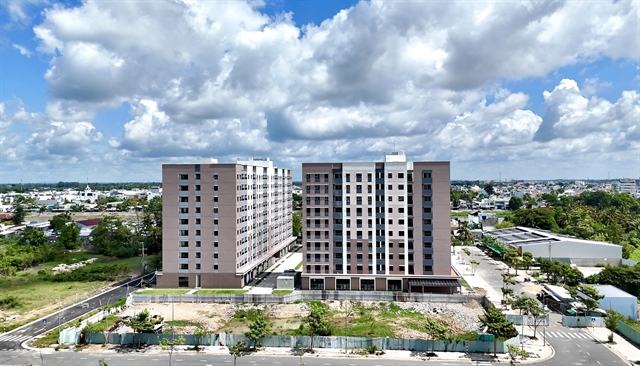The Ministry of Construction has put forward a proposal to raise the income ceiling for people eligible to purchase homes in social housing projects. The draft decree, which is set to replace Decree 100/2024/NĐ-CP, suggests increasing the monthly income limit for individuals from VNĐ15 million to VNĐ20 million. For married couples, the combined threshold would rise from VNĐ30 million to VNĐ40 million, while single parents with dependent children would be eligible if they earn no more than VNĐ30 million per month.
Eligibility would be determined through verification of wages over the past 12 months by employers or relevant agencies. For informal workers without labour contracts, the responsibility for certification would be shifted from local people’s committees to commune-level police, who would confirm eligibility based on the national population database within seven days of application.
The move has been welcomed by housing experts who argue that the existing limit excludes many workers who earn slightly more than VNĐ15 million but still struggle with high living costs in major cities like Hà Nội and HCM City. Lê Hoàng Châu, president of the HCM City Real Estate Association, said raising the cap would give more families a chance to own homes. Similarly, Nguyễn Xuân Dũng, chairman of logistics firm Viconship, pointed out that most buyers spend between VNĐ7 and 8 million monthly repaying loans, and the proposed threshold would allow them to balance debt repayment with basic living expenses.
Prime Minister Phạm Minh Chính recently voiced support for the plan during a conference on social housing development. Alongside the income adjustment, the Ministry of Construction also recommended lowering preferential loan rates for social housing buyers from 6.6 per cent to 5.4 per cent through the Việt Nam Bank for Social Policies. Economists, however, cautioned that long-term stability in interest rates matters more than short-term reductions, warning that floating rates could create serious risks for borrowers.
Despite the positive reception, experts noted that higher income thresholds alone will not resolve the country’s housing challenges. According to Nguyễn Văn Đính, president of the Việt Nam Association of Real Estate Brokers, the main obstacle remains inadequate supply. He observed that land allocation and infrastructure development have not kept pace with urbanisation, with many projects located in areas lacking hospitals, schools and transport access. Speculation and illegal transfers, he added, are also distorting the market.
Developers continue to shy away from the segment due to low profit margins, with industry leaders urging the government to streamline legal procedures, expand access to credit and guarantee reasonable returns to make social housing viable.
Data from the ministry shows that by mid-July 2025 more than 36,900 social housing units had been completed nationwide, representing 37 per cent of the target. Over 111,000 units are still under construction, with around 74,000 expected to be delivered by the end of this year. These projects form part of the national plan to build one million social housing units by 2030. So far, 692 projects with a combined 633,000 units have been launched.
The ministry pledged to continue cutting red tape and providing stronger support for developers in order to accelerate the delivery of affordable housing for low- and middle-income earners.




